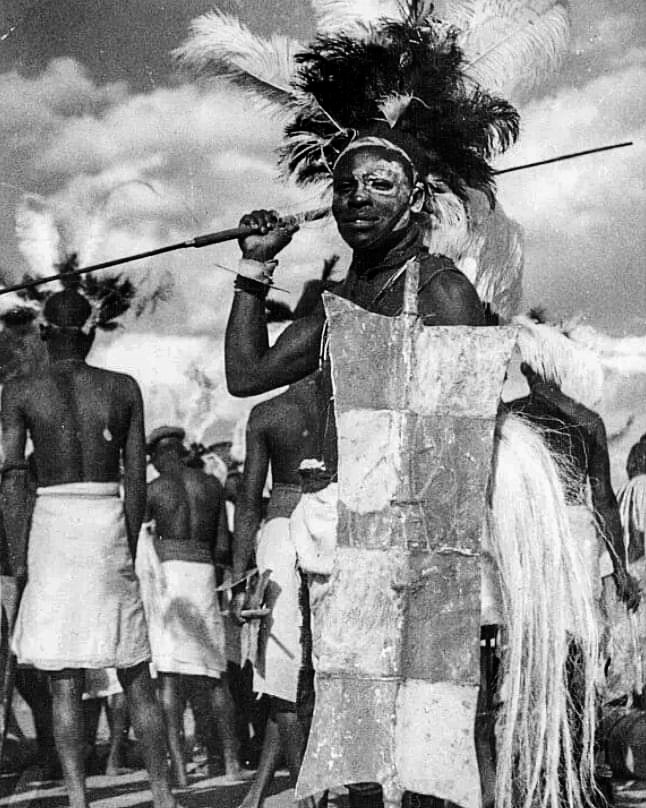The Kamba people, an ethnic group predominantly inhabiting the semi-arid Eastern Province of Kenya, have a rich cultural heritage characterized by unique beliefs, mythology, and rituals. This essay aims to be an introduction and overview of Kamba religious beliefs, delving into their pantheon of deities, mythological narratives, and cultural ceremonies.

Deities in Kamba Mythology
-
Ngai: The supreme deity in Kamba mythology, Ngai (also known as Mulungu or Asa), is revered as the creator and sustainer of the universe. Ngai is perceived as omnipresent, residing in the sky or on high mountains, and is often invoked for blessings, rain, and successful harvests.
-
Musumbi: A deity associated with the ancestral spirit world, Musumbi plays a significant role in the afterlife beliefs of the Kamba people. The reverence of ancestors is integral to Kamba spirituality, with Musumbi acting as a mediator between the living and the ancestral spirits.
Mythological Heroes and Creatures
The Kamba mythology, rich in oral tradition, features a variety of heroes and mythological creatures, each representing certain aspects of their cultural ethos.
-
Mwatuangi: A legendary hero, often depicted as a liberator and a symbol of justice. Mwatuangi is celebrated in Kamba folklore for his wisdom, bravery, and just rule. His stories often carry moral lessons emphasizing community values and social responsibility.
-
Nduumo: Mythical creatures resembling ogres or giants, Nduumo are said to dwell in forests and mountains. These beings are often portrayed as antagonists in myths and folktales, symbolizing the challenges and obstacles faced by the heroes.
Rituals and Ceremonies
The Kamba community observes various rituals and ceremonies, deeply rooted in their belief system.
-
Kilumi: A traditional dance and religious ceremony, Kilumi is performed to invoke rain, celebrate harvests, and seek communal blessings. It involves rhythmic dancing, drumming, and chanting, reflecting the community’s connection with nature.
-
Mbalya: A rite of passage for young girls, Mbalya is a ceremonial initiation marking the transition to womanhood. It includes teachings on morals, social responsibilities, and traditional customs.
-
Kitheka: A ritualistic healing ceremony led by a traditional healer or seer (mganga). Kitheka involves herbal medicines, prayers, and divination, reflecting the Kamba’s belief in spiritual healing and the power of nature.
Unique Cultural Beliefs
The Kamba people harbor several unique beliefs that are central to their cultural identity.
-
Divination and Healing: The Kamba are renowned for their skilled diviners and traditional healers. These individuals are believed to possess spiritual powers that enable them to interpret omens, diagnose illnesses, and communicate with the spirit world.
-
Ancestral Veneration: Ancestors hold a sacred place in Kamba belief. Rituals and ceremonies often include offerings and prayers to ancestors, seeking their guidance and protection.
-
Environmental Conservation: The Kamba have a strong tradition of environmental conservation, rooted in the belief that natural resources are gifts from Ngai. Sacred groves and certain animal species are protected as part of their spiritual heritage.

The Kamba people of Kenya showcase a fascinating blend of traditional African religious practices, with a profound reverence for their supreme deity Ngai, a rich tapestry of mythology featuring heroes like Mwatuangi, and rituals such as Kilumi that underline their deep connection with nature. Their unique practices in divination, ancestral veneration, and environmental conservation highlight the distinctiveness of their culture, providing a window into the diverse and vibrant spiritual landscape of the African continent.